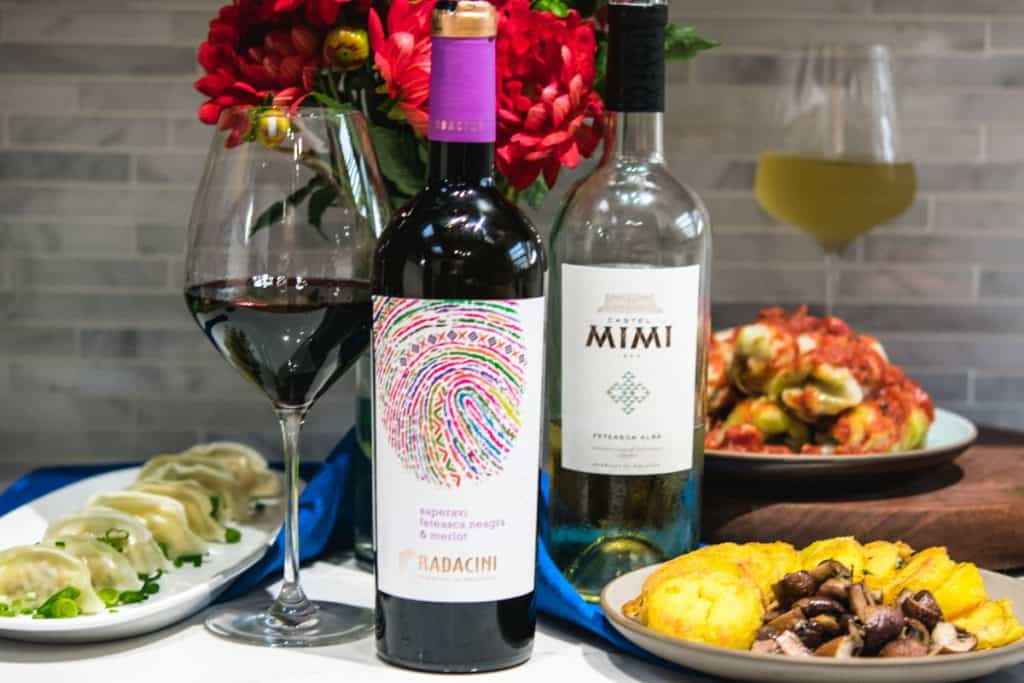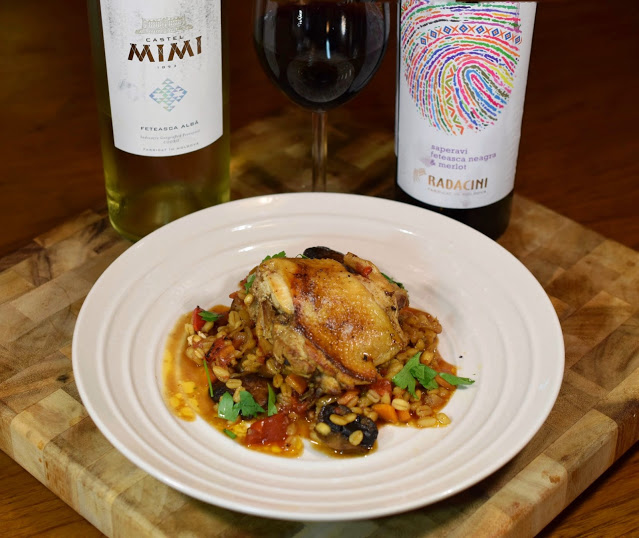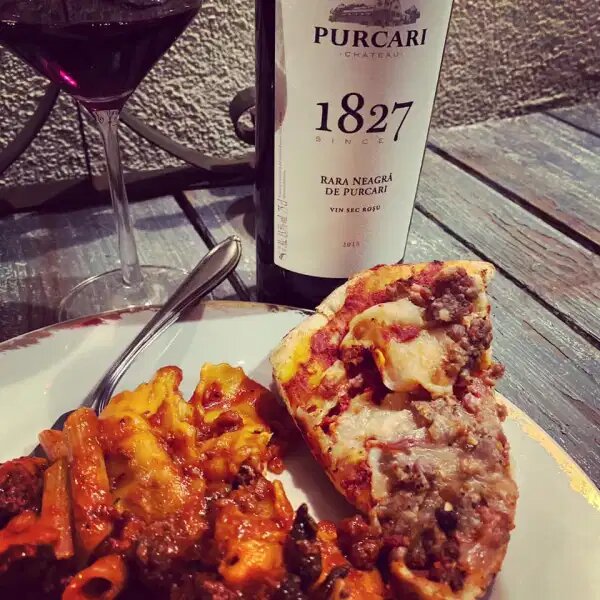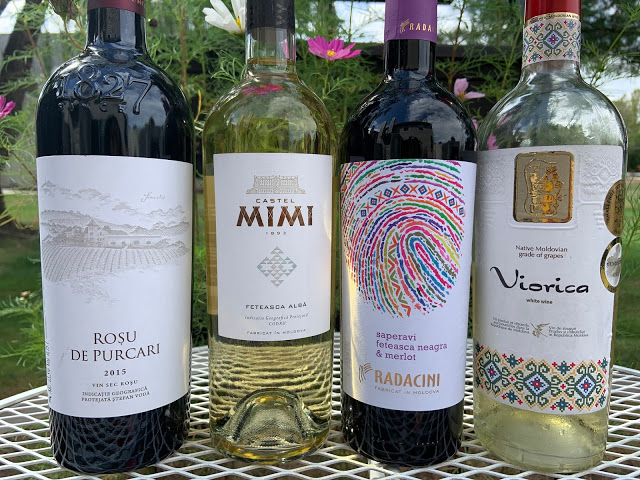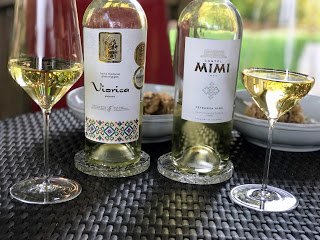The first weekend in October is National Moldovan Wine Day. Celebrate this oft overlooked and underrated wine country with savory vegan foods.
Disclosure: The wines featured in this post were provided by Wine of Moldova. All opinions are my own.
Ancient wine making tradition

For a tiny country you may have never heard of in Eastern Europe, Moldova has a rich wine making history that dates back to 3000 BC.
I had previously tried pairing Moldovan wines with Burmese cuisine, however for this edition I thought I would try traditional and vegan friendly fare.
Traditional Moldovan Foods
A search on Amazon yielded few Moldovan cookbooks published in English. Therefore, to learn more about the cuisine, I referenced this Peace Corp’s volunteer’s remembrance of foods she ate while serving in the country.
#1 Placinta – stuffed pastry pies

Pronounced pla-chin-ta, these are a common to go snack consisting of fried bread stuffed with cabbage, potatoes, or homemade cheese known as brinza.
#2 Mamaliga – wet cornbread
Similar to polenta, this is a traditional peasant dish made with water, salt, and cornmeal.
It is common accompaniment at the dinner table and can be served hot like porridge or baked into a moist, sliceable dome and served at room temperature.
#3 Sarmale – stuffed cabbage or peppers

Pronounced sar-moll-ayy, these are the cozy little bundles of cabbage or stuffed cabbage rolls or bell pepper baked in oil and stuffed with rice and vegetables.
Moldovan wine pairings
For my version inspired by the three classic Moldovan dishes above, I paired the following vegan dishes with three Moldovan wines.
- Cabbage rolls stuffed with lentils and brown rice and baked in a rich, wood fired tomato sauce
- Cornmeal fried yukon gold potatoes
- Thyme and red wine roasted mushrooms
- Vegetable stuffed and steamed dumplings
The Winning White Wine
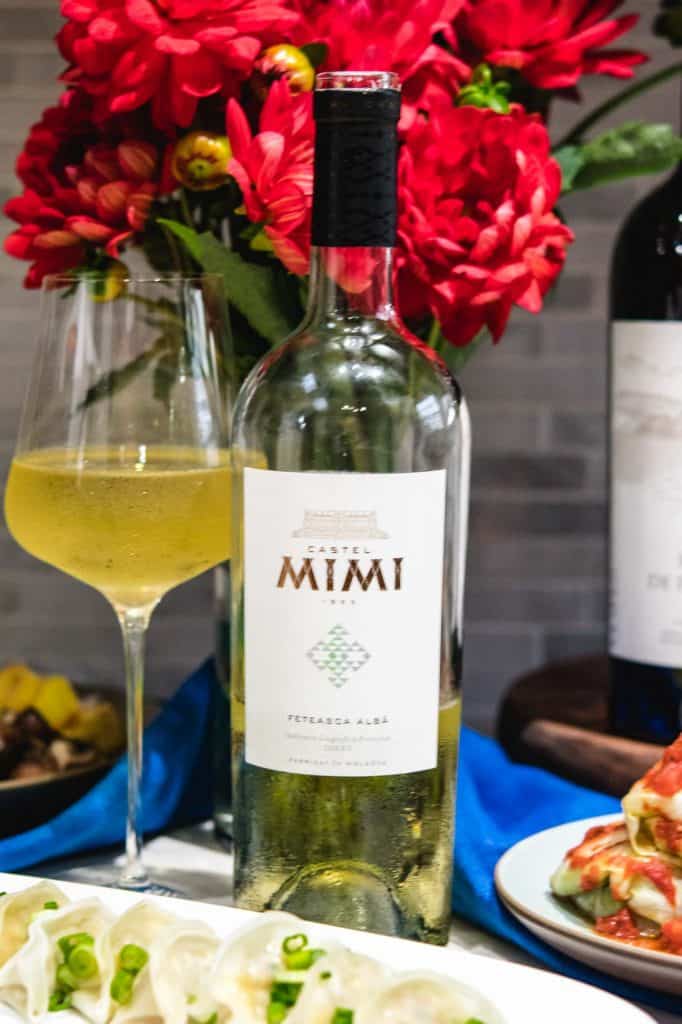
Of the three Moldovan wines I tried, the Feteasca Alba proved to be the most versatile and food friendly for my vegetable dishes.
On its own, it made my mouth pucker with almost cloying acidity of fresh cut green apples, back of the mouth honeydew sweetness, and bitterness of lime zest and lemon pith.
With food though, it softened considerably and provided just the right touch and weight to balance the sweetness of the tomato sauce and savoriness of the lentil stuffed cabbage rolls.
I also tried this wine with a Hyderabadi vegetable curry topped with dried apricots and a fresh heirloom tomato salsa with blue corn chips. The acidity in the wine held up so pleasantly to a rich Indian curry and still summer ripe, juicy tomatoes.
As for the two Moldovan red wines I tried, they had a nice balance of acid and richness that didn’t quite match with my vegetables, but I would happily enjoy on their own.
The Red Fleshed Red Wine
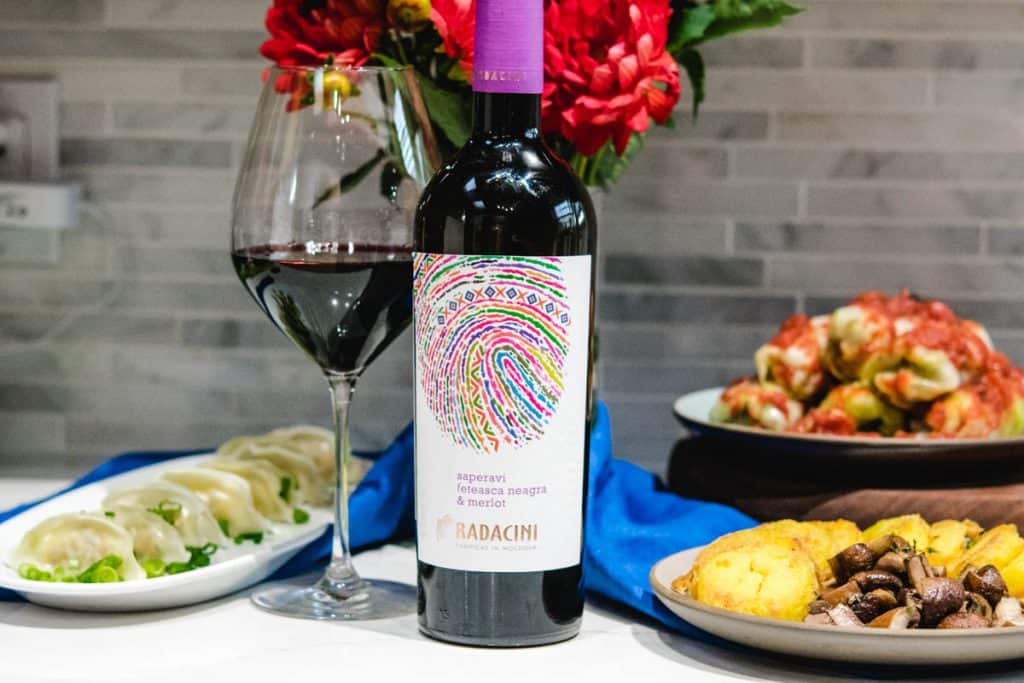
Saperavi is one of the few red wine grapes that also has red flesh inside of it instead of white flesh.
The result is a rich, inky dark purple wine. Whereas a New World expression of this grape might have more oak and fruit character, the Radacini version from Moldova still has bright acidity, juicy blackberry notes, and oak aging for just 3 months.
A Moldovan Cabernet Sauvignon
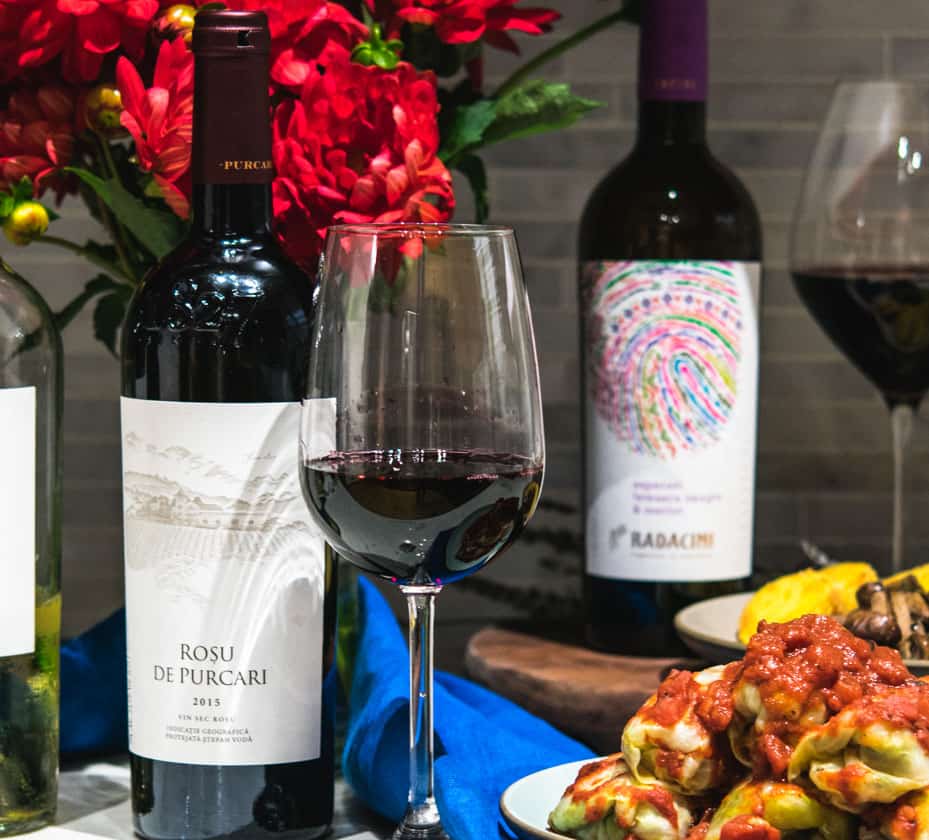
The cabernet sauvignon blend from Rosu de Purcari turned out to be quite the kind of armchair travel one needs in a Covid restricted world.
Curl up with a cozy glass of this velvet textured, dark plum and cocoa dusted wine with a silky finish.
It paired quite nicely with a gas fireplace and smoke from the the real life wildfires raging in nearby Napa and Sonoma counties.
The wines from this small country of Moldova reminded me of quaint towns and green pastures we would all like to escape to someday. In the meantime, we can taste their essence, captured in these bottles, to be enjoyed everyday.

Posted by Deanna at Asian Test Kitchen

